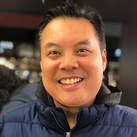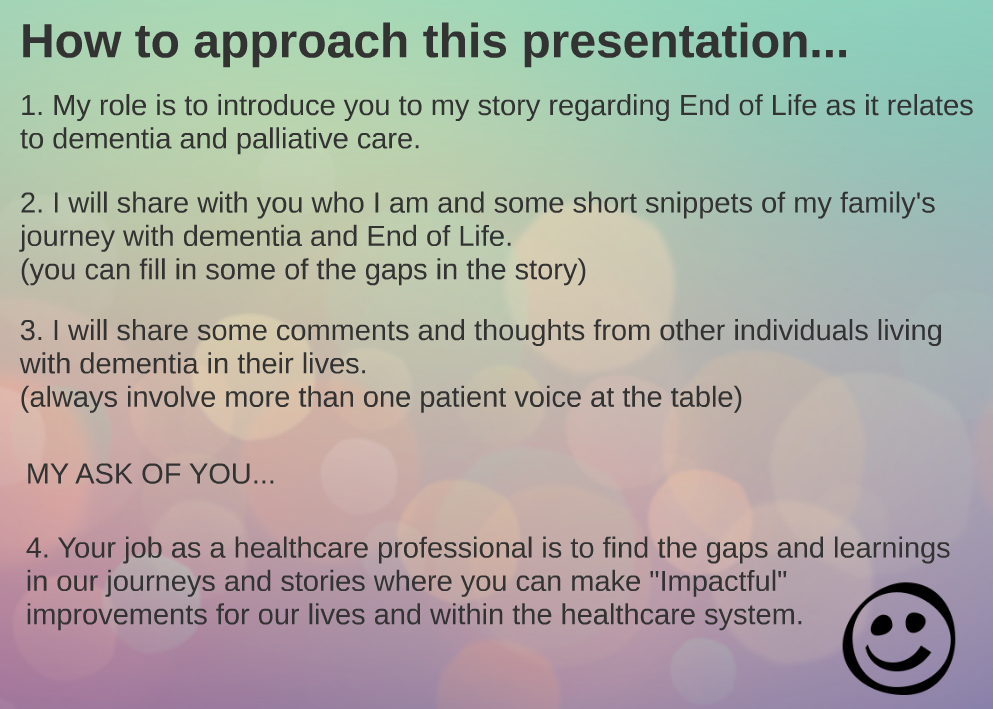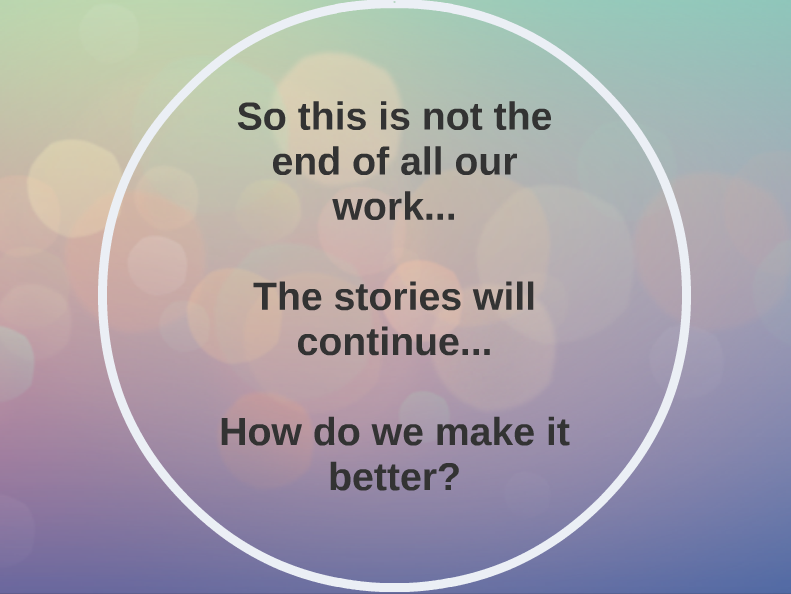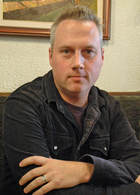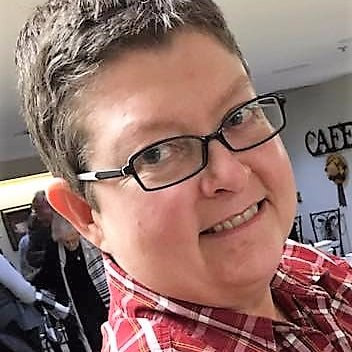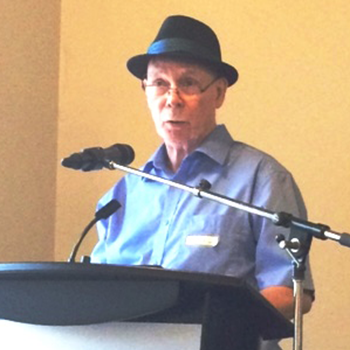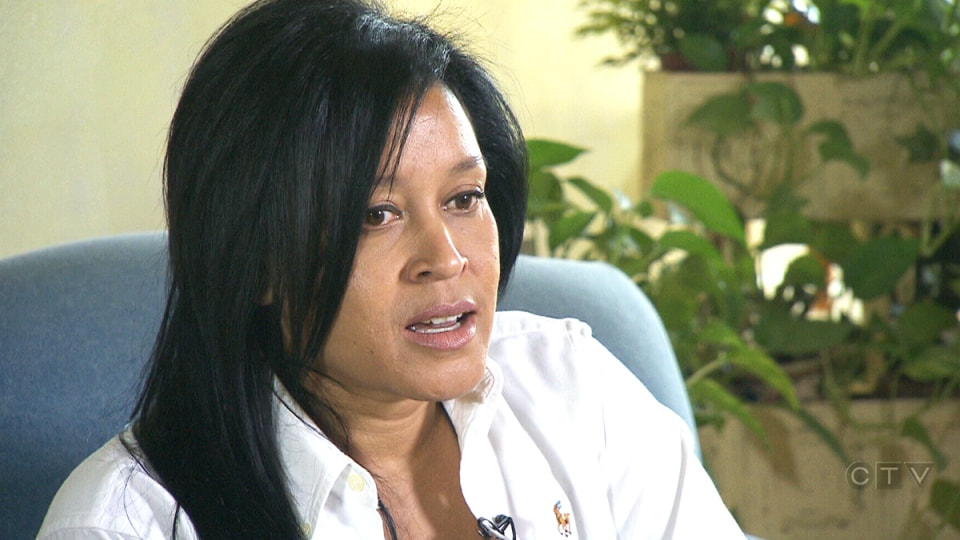|
"Before my father passed away he spent about one week in the hospital. They were very good with letting us spend as much time with him as possible, even after visiting hours. They were also good at giving us all the information about what was happening to him throughout the week, but once it was determined that he was going to die, the hospital left us alone and did not give us any support from a social worker, and it was up to us to find other help about the loss of a loved one, so that could have been a bit better for our experience." - Chris Wynn
|
Much Too Young Documentary
|
|
Kate Swaffer (Living with Dementia - Australia)
Twitter: @KateSwaffer Chair and CEO, Dementia Alliance International South Australian of the Year (2017) "People with dementia and our families have been advocating for appropriate palliative care for many years, and now find that it is offered, in most developed countries. It is important though, that we are provided with the opportunity to plan and discuss our feelings and personal choices on our end of life at the time of diagnosis, as people with cancer or Motor Neurone Disease are supported to do. Hence, I ask, that palliative care planning, as well as Advanced Care and other end of life planning is initiated at the time of diagnosis, when we still have the capacity to make these choices." - Kate Swaffer
|
|
|
Mary Beth Wighton (Living with Dementia - Canada)
Twitter: @MaryBethWighton Chair and Founding Member of Ontario Dementia Advocacy Group (ODAG) "For me to get the dignified and respectful End of Life Care I want – you must talk with me first and ask the questions. My death is inevitable. Please understand my needs and desires as you care for me in my final chapter of life." - Mary Beth Wighton
|
|
|
|
Caron Leid (Caregiver, Author - Canada)
Twitter: @Utilitairan www.CaronLeid.org Alzheimer's -What they forget to tell you A Personal Journey |
|
In the year 2000 at the age of 30, I gave birth to my son and my mother who was residing in Trinidad at the time, came to help me with her grandson. Shortly after noticing a few uncharacteristic things, I took my mom to the doctor. The doctor performed a Mini Mental Exam, and looked at me and said, “your mom has
Alzheimer’s disease and your life is going to change”
There were no truer words spoken to me, in the going on 18 years that have followed. My father passed away 14 months after those words were spoken and I embarked on my new journey of primary caregiver to my mother. I have dedicated now almost two decades trying to solve this unsolvable puzzle of dealing with Alzheimer’s and caring for my mom and my son and balancing my life. It has taken a lot from me. Alzheimer’s disease is not completely to blame for my failed marriage, however definitely also did not assist in it either, and has piece by piece taken the one person that I relied on for everything in my life and switched the role, almost
instantly.
I wrote a book about that journey, and I have not stopped writing journal articles, assisting in any way I can of how we can assist the caregiver in this journey. I now am doing weekly podcasts and working on my second book. I would like to say that the palliative care journey is serene and uncomplicated, but it has it’s own new challenges. I made a decision at the beginning that I knew was a sacrifice in itself, to keep my mother at home until the end. A choice, a decision, my decision and I am comfortable with it. This disease, as I always refer to as, reverse aging is horrific to watch. My mom also has seizures, and the last bad one, which was over 2 years ago, put her in palliative care. Her brain is severely shrunken – as per MRI’s however, all of her organs are strong. Therefore, she is healthy, other than Alzheimer’s disease. My mother is anomaly, she never followed the stages of the disease at the beginning, or middle, and so it is not shocking to me that she is not following the end stages of the disease. Her bedsores actually heal. The doctors and the palliative care nurses attribute it to her care. (That is a compliment I suppose to me) So the double edge sword, is my mother is dying from this horrific disease, and I am actually sustaining her life. (I battle with that daily) However, She is still eating, puree foods and until she decides not to, I will be with her, trying to provide the best possible care until she decides she no longer wants to battle this disease., and I will be there as well. - Caron Leid
Alzheimer’s disease and your life is going to change”
There were no truer words spoken to me, in the going on 18 years that have followed. My father passed away 14 months after those words were spoken and I embarked on my new journey of primary caregiver to my mother. I have dedicated now almost two decades trying to solve this unsolvable puzzle of dealing with Alzheimer’s and caring for my mom and my son and balancing my life. It has taken a lot from me. Alzheimer’s disease is not completely to blame for my failed marriage, however definitely also did not assist in it either, and has piece by piece taken the one person that I relied on for everything in my life and switched the role, almost
instantly.
I wrote a book about that journey, and I have not stopped writing journal articles, assisting in any way I can of how we can assist the caregiver in this journey. I now am doing weekly podcasts and working on my second book. I would like to say that the palliative care journey is serene and uncomplicated, but it has it’s own new challenges. I made a decision at the beginning that I knew was a sacrifice in itself, to keep my mother at home until the end. A choice, a decision, my decision and I am comfortable with it. This disease, as I always refer to as, reverse aging is horrific to watch. My mom also has seizures, and the last bad one, which was over 2 years ago, put her in palliative care. Her brain is severely shrunken – as per MRI’s however, all of her organs are strong. Therefore, she is healthy, other than Alzheimer’s disease. My mother is anomaly, she never followed the stages of the disease at the beginning, or middle, and so it is not shocking to me that she is not following the end stages of the disease. Her bedsores actually heal. The doctors and the palliative care nurses attribute it to her care. (That is a compliment I suppose to me) So the double edge sword, is my mother is dying from this horrific disease, and I am actually sustaining her life. (I battle with that daily) However, She is still eating, puree foods and until she decides not to, I will be with her, trying to provide the best possible care until she decides she no longer wants to battle this disease., and I will be there as well. - Caron Leid

